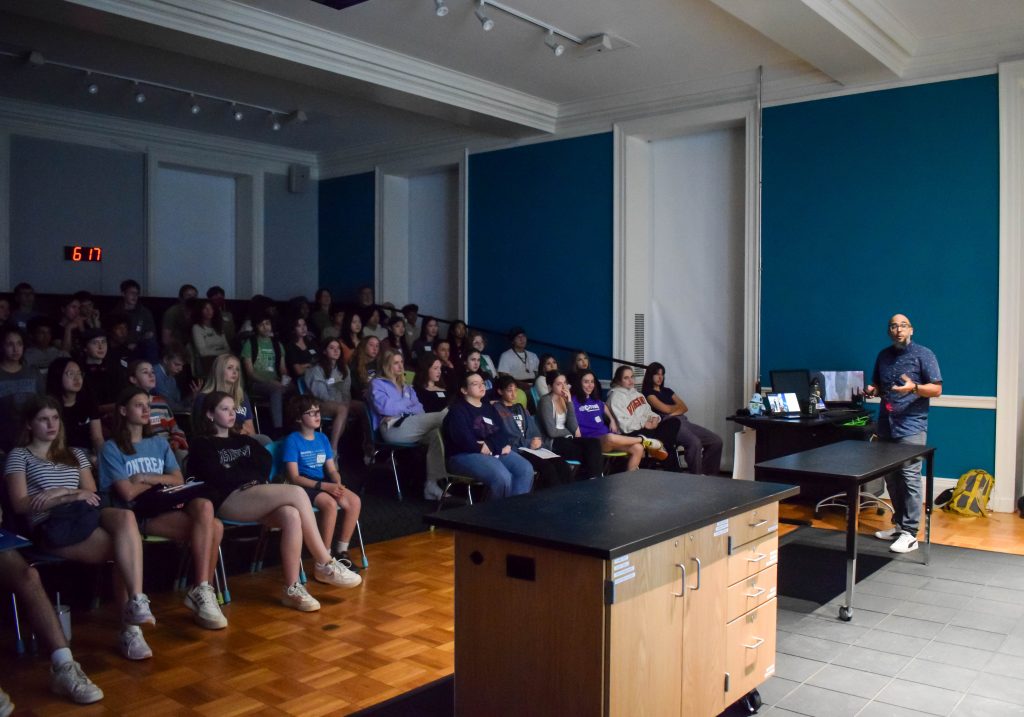Morehead Planetarium and Science Center’s Teen Science Cafe program, which leads a monthly night of social and educational community for young adults aged 13-18, hosted the Center for Galapagos Studies’ Esteban Agudo on Friday, November 17. Esteban, a Ph.D. student in the department of biology within the UNC College of Arts and Sciences, is conducting marine ecology research at UNC, specifically focusing on the Galapagos Islands. His talk explored how rising ocean temperatures, caused by climate change, affect marine animals on a species, community, and ecosystem level.

About 70 students from local Chapel Hill and Carrboro high schools attended Esteban’s talk, entitled “Does warmer mean hungrier?”, packing the presentation room after a pizza social upstairs. Esteban took the teens through an introduction into his field of work as a marine biologist and introduced them to the Galapagos Islands where he conducts his research, including the popular endemic marine animals it houses, such as the Galapagos marine iguana and sea lion.
Esteban also took some time at the beginning of the presentation to break down the daunting issue of climate change as a general concept before introducing his specific research. Through a guiding question of “How does ocean warming affect how much marine animals eat?”, Esteban led the teens through an exploration of how climate change impacts marine life and why that’s important for everyone – not just marine biologists – to know.
After taking the teens through his research question, hypothesis, methodology, and conclusions – which proved correct his hypothesis that the marine animals he studied eat more when ocean temperatures rise – Esteban returned to the issue of climate change. The oceans are warming, causing disruption to marine ecosystems and communities. These disruptions include the alteration of predator-prey dynamics and the reduction of important food sources due to the higher food intake. Now what? Esteban’s advice was simple: the most important idea for the teens to take away from this presentation is the necessity of listening to scientists and making informed decisions.
So, while Esteban hopes the teens in attendance enjoyed learning about his research – and in fact, he had a student approach him after the presentation to ask about collegiate marine biology programs – the most important takeaway is to take intentional, informed action about climate change.
“Tomorrow, [the teens are] going to go into engineering; they’re going to go into biology; they’re going to vote. I think that’s the most important thing…that they grow up making informed decisions, like voting for people who take this seriously. And, if they want to go into engineering and work with clean energy, that’s just a plus.”
This event was made possible by Morehead Planetarium and Science Center’s Teen Science Cafe, which is organized by an advisory board of 13 local teens and led by Morehead Planetarium and Science Center’s Community Education Specialist, Will Freund.
By Andy Little ‘24, Center for Galapagos Studies Student Worker
